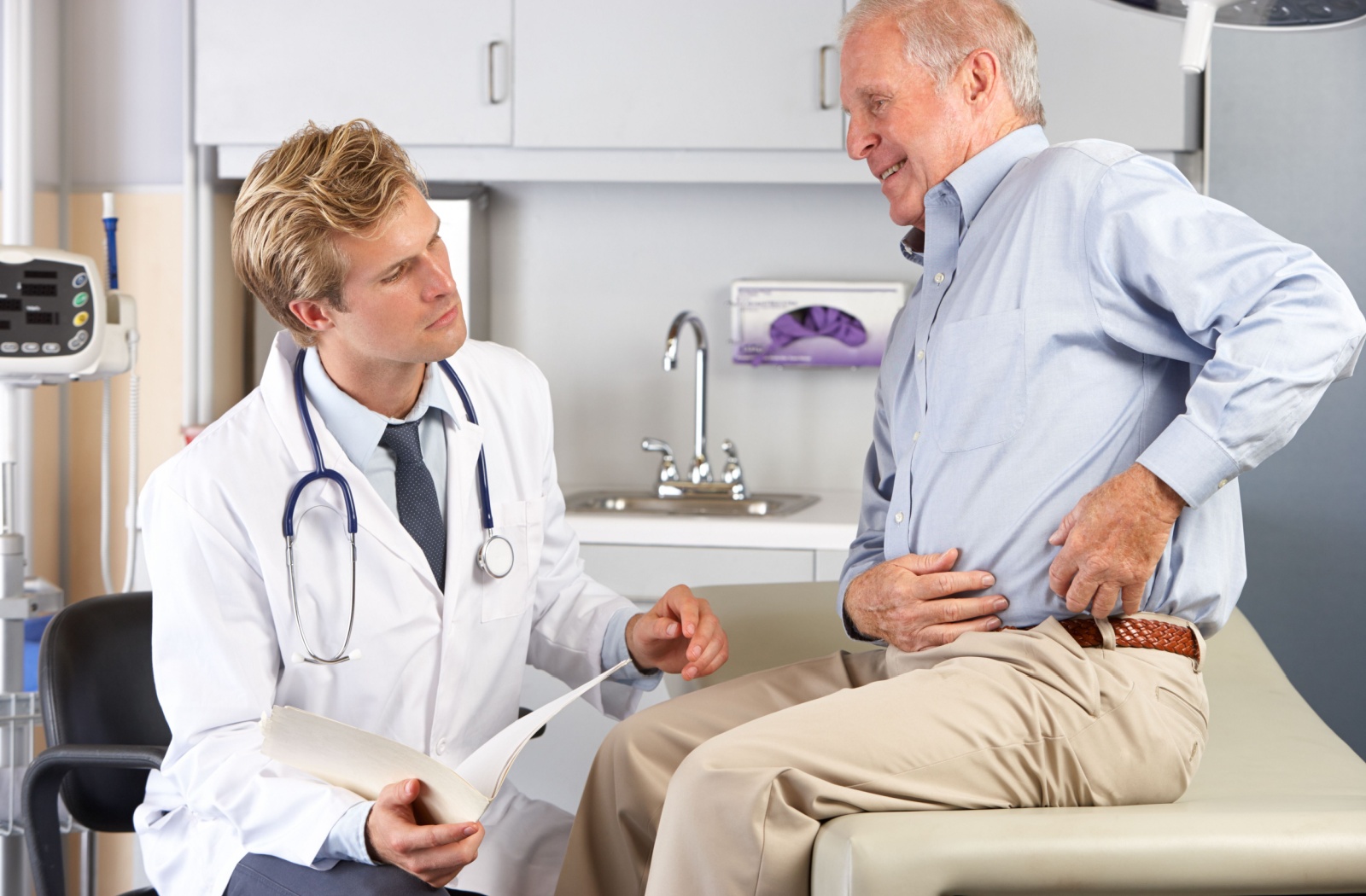Key Takeaways
- Osteoporosis can contribute to hip pain by weakening bones, making them more susceptible to fractures and stress injuries.
- Early diagnosis and treatment are crucial for effectively managing osteoporosis and preventing complications.
- Combining medication, balanced nutrition, and weight-bearing exercises can help strengthen bones and alleviate pain over time.
- Taking proactive steps toward improving bone health can support your overall well-being and quality of life.
Hip discomfort can be worrisome, especially as we age. Osteoporosis can contribute to hip pain by weakening bones, making them more prone to fractures or stress injuries.
If you’ve been diagnosed or suspect you have osteoporosis, it’s essential to address this condition to prevent further complications.
Managing osteoporosis through proper treatment, including medication, dietary adjustments, and weight-bearing exercises, can help strengthen bones and alleviate pain.
Taking proactive steps toward maintaining bone health can make a significant difference in your overall quality of life.
What Is Osteoporosis?
Osteoporosis is a condition that weakens bones, making them fragile and increasing the likelihood of fractures. Often referred to as a “silent disease,” it typically develops without noticeable symptoms until a fracture occurs.
The condition causes bones to lose density and strength over time, creating a honeycomb-like structure that’s more porous than healthy bone.
Causes and Risk Factors
Several factors can increase your risk of developing osteoporosis:
- Age: Bone density naturally decreases after age 30
- Gender: Women face a higher risk, especially after menopause
- Family history: Genetics play a significant role
- Lifestyle factors: Smoking, excessive alcohol consumption, or a sedentary lifestyle
- Medical conditions: Thyroid disorders, rheumatoid arthritis, and certain medications
- Nutritional deficiencies: Low calcium and vitamin D intake
Common Symptoms
While osteoporosis often remains silent in early stages, some warning signs include:
- Loss of height over time
- Stooped posture
- Back pain from fractured vertebrae
- Bones that break more easily than expected
How Does Osteoporosis Affect the Hips?
The hips are among the most vulnerable areas for osteoporosis-related complications. Hip bones bear significant weight and stress during daily activities, making them particularly susceptible to fractures when weakened by osteoporosis.
Hip fractures can be life-changing events that significantly impact mobility and independence.
Does Osteoporosis Itself Cause Pain?
Here’s an important distinction: osteoporosis alone typically doesn’t cause pain. The condition itself is often painless until complications arise. However, the consequences of osteoporosis—particularly fractures—can cause significant discomfort.
Signs of Osteoporosis-Related Hip Problems
Watch for these warning signs that may indicate hip complications from osteoporosis:
- Sudden, severe hip pain after a fall or minor trauma
- Difficulty bearing weight on one leg
- Pain that worsens with movement
- Groin pain that radiates to the thigh
- Shortened leg on the affected side
How Can You Prevent Hip Pain and Fractures?

The good news is that osteoporosis and its complications are largely preventable through proactive lifestyle choices and medical care.
Calcium and Vitamin D Intake
Strong bones need proper nutrition. Adults should aim for:
- 1,000-1,200 mg of calcium daily from sources like dairy products, leafy greens, and fortified foods to help harden and strengthen bones
- 800-1,000 IU of vitamin D daily from sources like safe sun exposure, fatty fish, certain mushrooms, and fortified foods to help calcium absorption
Weight-Bearing Exercises
Regular physical activity helps strengthen bones and improve balance. Effective exercises include:
- Walking or jogging
- Dancing
- Stair climbing
- Resistance training with weights
Fall Prevention Strategies
Reducing fall risk is crucial for preventing hip fractures:
- Remove tripping hazards from your home
- Install grab bars in bathrooms and entryways
- Place adequate lighting throughout your living space
- Wear appropriate footwear with a good grip
Medications and Treatments
Your healthcare provider may recommend:
- Bisphosphonates to slow bone loss
- Hormone therapy for postmenopausal women
- Calcium and vitamin D supplements
- Regular bone density screenings
How Can You Manage Hip Pain from Osteoporosis?
If you’re experiencing hip pain related to osteoporosis complications, several approaches can help:
- Work with physical therapists to maintain mobility
- Use assistive devices when needed
- Apply heat or cold therapy as recommended
- Follow your doctor’s pain management plan
- Consider complementary therapies like gentle yoga or tai chi
When Should You Seek Medical Help?
Contact your healthcare provider immediately if you experience:
- Sudden and severe hip pain after a fall
- Inability to bear weight on your leg
- Visible deformity in your hip or leg
- Persistent pain that interferes with daily activities
- Any concerns about your bone health
Early intervention can make a significant difference in outcomes and help preserve your quality of life.
How Can Personal Care Support Your Journey?
Living with osteoporosis doesn’t mean giving up your independence. Professional personal care services can provide valuable support while you maintain your active lifestyle.
At The Terrace at Chestnut Hill, our experienced caregivers understand the unique needs of individuals with osteoporosis and other health conditions.
Our personal care services include assistance with daily activities, medication management, and mobility support—all designed to help you live confidently while managing your health.
Our team collaborates closely with healthcare providers so you can receive comprehensive care tailored to your specific needs.
Embracing Wellness and Independence
Living with osteoporosis requires thoughtful management, but it doesn’t have to limit your lifestyle. At The Terrace at Chestnut Hill, seniors with osteoporosis can find the support and resources they need to maintain active, fulfilling lives.
With a focus on healthy living and a safe, welcoming environment, our community is dedicated to promoting bone health and overall well-being.
From tailored lifestyle modifications to a network of caring professionals, The Terrace at Chestnut Hill is here to help you or your loved one navigate osteoporosis with confidence.
Contact us today to discover how our community can make a meaningful difference in your health and independence.









